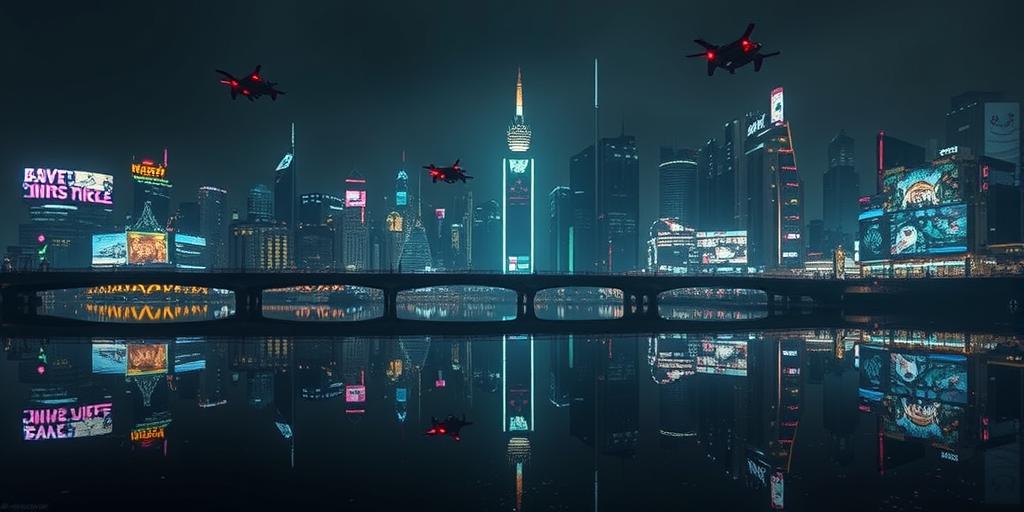Have you ever wondered about a future where machines surpass human creativity? It's a fascinating, slightly unnerving, and undeniably important question. This isn't science fiction; we're already seeing AI create stunning art, write compelling music, and even craft convincing narratives. But what happens when AI truly becomes more creative than us? Let's dive into this mind-bending exploration of artificial intelligence, creativity, and the future of human ingenuity.
The Rise of the Machines (and Their Muse)
The rapid advancement of artificial intelligence has ushered in an era where machines are not merely tools, but collaborators in the creative process. AI algorithms are now capable of generating images, composing music, writing scripts, and even designing products with remarkable originality. This progress raises fundamental questions about the very nature of creativity and its exclusive domain within humanity. We're now facing a world where AI can not only mimic human creativity but also explore innovative avenues that might never have occurred to us. Consider the impact of AI-driven tools on fields such as architecture, fashion design, and game development. New styles, functionalities, and aesthetics are constantly emerging, defying traditional limitations and pushing the boundaries of creative expression. How will AI further impact human creativity? What new collaborative models will emerge? The answers are as multifaceted as the applications of AI itself.
AI as a Collaborative Partner
Instead of seeing AI as a threat, we can view it as a powerful partner in the creative process. AI can offer insights, suggest new directions, and generate variations on ideas that humans may not have considered. Think of it as a supremely talented intern who never sleeps and always has fresh ideas. Imagine a musician working with an AI that can generate unique musical phrases based on their input, or a writer collaborating with an AI to craft a compelling narrative.
AI's Unique Creative Capabilities
AI's capabilities are expanding beyond simple imitation. It's starting to exhibit its own unique creative style and flair. AI art, for example, often possesses a distinct aesthetic that is both alien and captivating. This opens up exciting new possibilities in art, design, and other creative fields. Moreover, AI can process vast amounts of data, enabling it to identify patterns and connections that might escape the human eye. This capacity to synthesize information in novel ways can provide fresh creative perspectives, leading to innovations across various fields.
The Impact on Human Creativity
Will machines eventually render human creativity obsolete? It's an alarming thought, but the reality is far more nuanced. While AI can undoubtedly automate certain tasks and augment human capabilities, the human element — our emotions, experiences, and unique perspectives — remains irreplaceable. The key lies in collaboration and the integration of AI into our workflows.
Human-AI Synergy: The Future of Creativity
The ideal future isn't about humans versus AI, but humans with AI. We can harness AI's power to enhance our creativity, to break free from creative blocks, and to explore uncharted territories in our artistic endeavors. The integration of AI tools into design processes is a prime example. By assisting with repetitive or time-consuming tasks, AI frees up human designers to focus on the more nuanced, conceptual aspects of their work, promoting more efficient and imaginative outcomes.
Redefining Creativity in the Age of AI
The advent of AI forces us to reconsider what we mean by "creativity." If a machine can generate a beautiful piece of art, does that diminish the value of human-created art? The answer is a resounding no. Human creativity is rooted in our experiences, emotions, and capacity for self-reflection. AI's output, however brilliant, lacks the same depth of personal meaning and emotional resonance. This does not diminish AI's creative capabilities, but rather underscores the unique value and impact of human creativity.
The Ethical Considerations
As AI becomes increasingly sophisticated, it's crucial to address the ethical considerations surrounding its use. Issues like copyright, ownership, and the potential for AI-generated content to spread misinformation need to be carefully examined. Moreover, the potential displacement of human creatives warrants thoughtful consideration and mitigation strategies. We must build safeguards and guidelines to ensure the ethical and responsible development and deployment of AI in creative fields.
Navigating the Copyright Maze
The issue of copyright in the context of AI-generated content is particularly complex. If an AI creates a work of art, who owns the copyright? Is it the AI's programmer, the user who prompted the AI, or the AI itself? These are difficult questions that require careful consideration and potential legal reforms. Collaboration between policymakers, legal experts, and AI developers is critical to establishing clear guidelines and avoiding potential conflicts.
Ensuring Responsible AI Development
The responsible development and use of AI are crucial. We need transparent and accountable processes to ensure that AI systems are not used for malicious purposes and that the potential risks are adequately addressed. This includes establishing clear ethical guidelines for the development and deployment of AI systems, fostering open dialogue about potential societal impacts, and encouraging collaboration between researchers, policymakers, and the public. This will assist in ensuring a more equitable and beneficial integration of AI into creative industries.
Embrace the future, and let's work together to harness the power of AI for the benefit of all! Let's explore the new horizons of creativity and innovation that await us.









